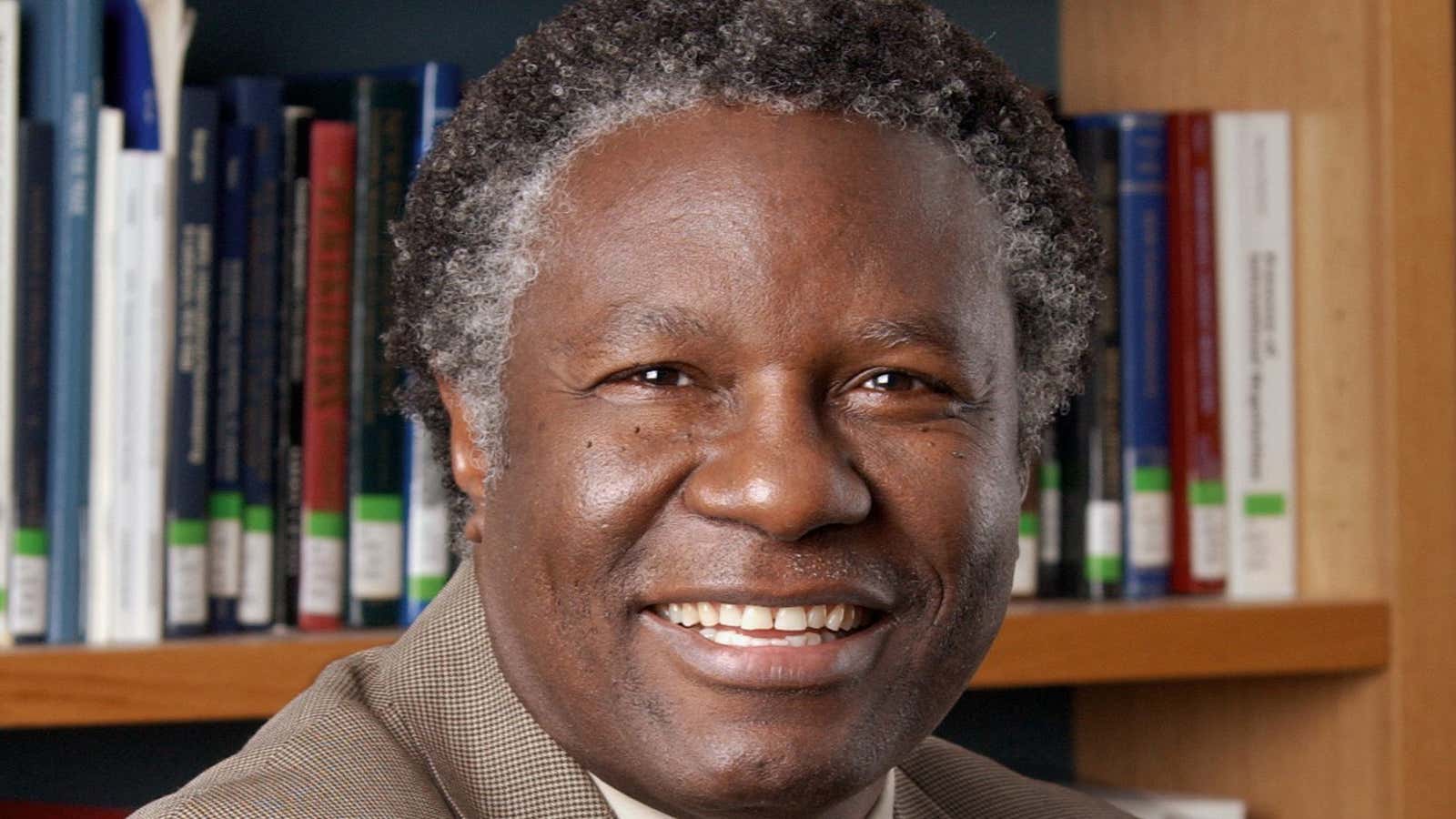Calestous Juma, the luminary Kenyan scholar who championed the cause of innovation and technology in transforming African countries, and whose books and papers about the environment, biotechnology, education, artificial intelligence, and the politics of land in Africa made him a towering figure both in the continent and across the world, has died. He was 64.
Juma, a faculty member at the Harvard Kennedy School, died while undergoing treatment in Boston, Massachusetts. His Kenyan lawyer, Peter Wanyama, told the Daily Nation newspaper that he had been unwell in recent weeks, and could not even attend his mother’s burial that took place two weeks ago.
Born in Busia in western Kenya, Juma worked as a schoolteacher and was subsequently employed as a journalist at the Nation newspaper. He later transitioned to work as a researcher at the Environment Liaison Center in Nairobi—a position he credited getting after being hired by the late Kenyan Nobel Prize winner Wangari Maathai.
With a doctorate in science and technology policy studies from Sussex University in the UK, Juma received international recognition for his work on technological innovation, genetic patenting, and the impact of the Green Revolution in Africa. As part of his work, he sat on the jury of prestigious awards including the Queen Elizabeth Prize for Engineering, the Africa Prize for Engineering Innovation, and the Africa Food Prize.
Juma, who was a prolific writer and an avid user of social media, especially Twitter, focused on how Africa could use available technologies to leapfrog and accomplish positive results in areas ranging from energy, education, health, transportation, and agriculture. His pieces—including many that he wrote for Quartz—touched on how to use the mobile revolution to stimulate economic and digital development. Many championed trade, business, science, and technology but he also showed the importance of the arts in the continent’s development.
As much as he advocated for entrepreneurship and progress, Juma was also stern in his warnings to African governments, positing that Africa will not develop without creating the right policies or setting up the much-needed infrastructure.
For decades, Juma wrote and co-wrote books in diverse fields ranging from the environment and private property (In Land We Trust), to agricultural innovation in Africa (The New Harvest), and cloning (The Gene Hunters). His last book, Innovation and its Enemies, drew on 600 years of economic history to explain some of the hindrances and psychological biases that have made or broken technological adoption.
Juma, who served on the boards of several international bodies and had won several international awards for his work on sustainable development, was working on books covering regional integration in Africa and innovation for economic development, according to Harvard’s Belfer Center for science and international affairs.
The news of his death saw messages of condolences shared by fans, former students, fellow academics, and presidents from all over the world. Ash Carter, the director of the center, said Juma “had no ego” and was a “fount of insight, optimism, and good humor.”
“If you’ve ever walked through our hallways and heard a boisterous laugh, that was Calestous. If you’ve ever seen a faculty member delighting in pick-up soccer along the shores of the Charles River, that was Calestous. If you’ve ever had your assumptions challenged and curiosity stoked all at once, that was Calestous.”
